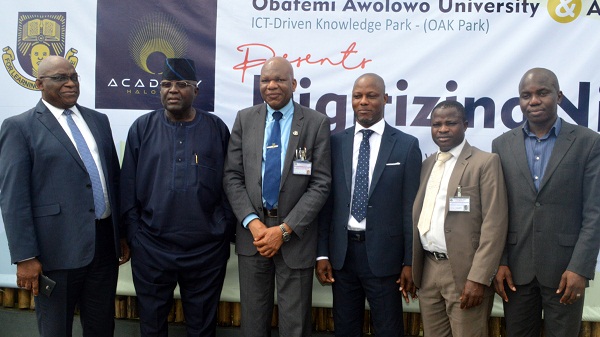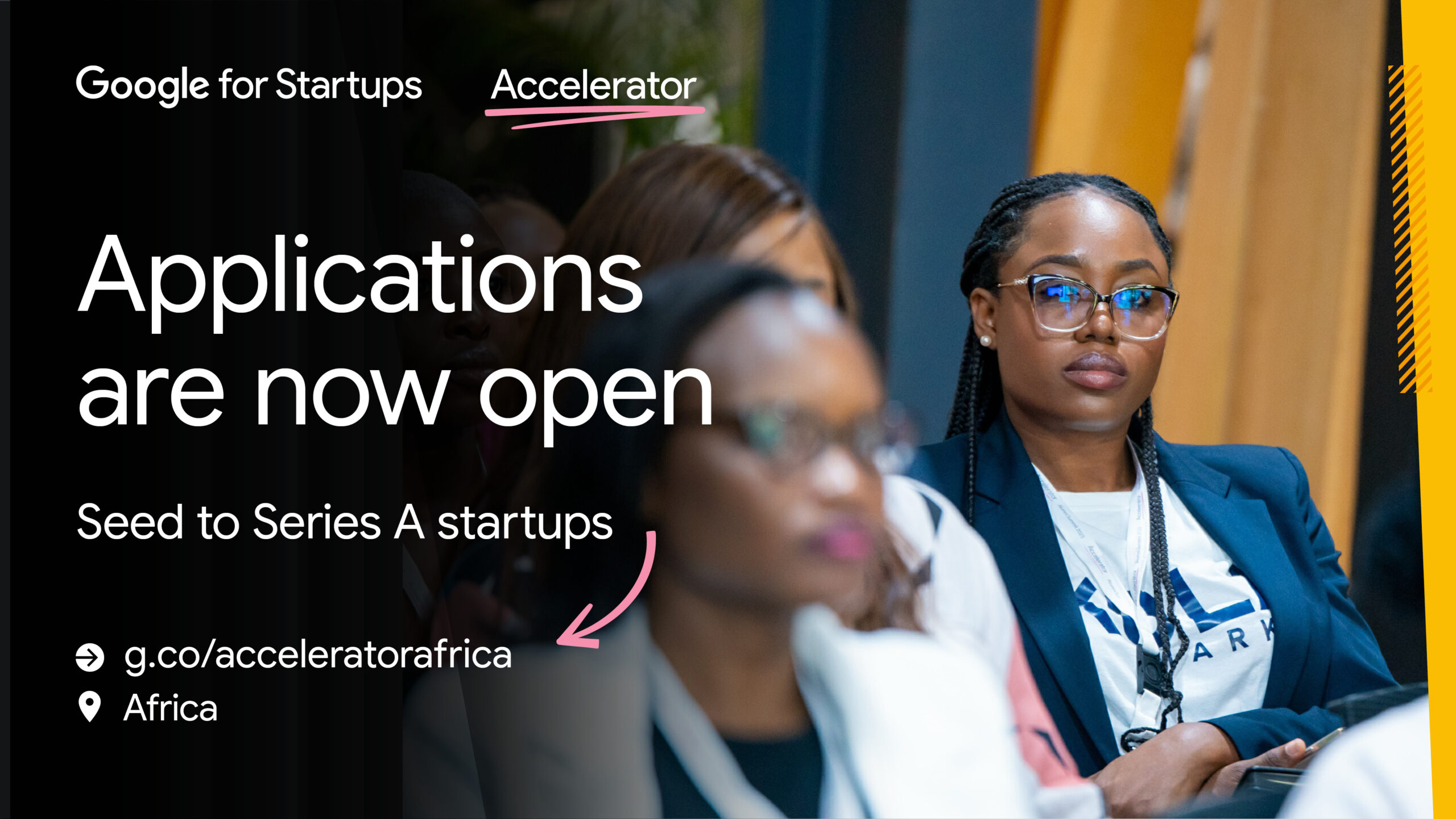Telecom
Academy Halogen Deepens Cyber Security Conversation with Digitization Confab

Academy Halogen, the Halogen School of Security Management & Technology, has emphasized the need to create a clear policy direction for Nigeria’s digital economy to facilitate effective cyber security practice.
This is because, in today’s digitized world, cyber security has become a vital component of enterprise risks solution helping organizations to deliver their bottom-line.
Dr. Wale Adeagbo, Chief Operating Officer of Academy Halogen, echoed the importance of a strong cyber security policy direction at the opening of a policy development session hosted at the Ikeja GRA, Lagos campus of the institution.
Tagged ‘Digitizing Nigeria; A meeting of Town and Gown’, the cyber security policy confab was a joint initiative of Academy Halogen and the ICT-Driven Knowledge Park of the Obafemi Awolowo University, OAU.
The Academy Halogen boss described the cyber security knowledge sharing session between industry experts and thought leaders from the academic community as a gathering meant to “trigger vital public discussion on how best to digitize Nigeria for the benefit of commerce and knowledge management”.
Professor Eyitope Ogunbodede, Vice-Chancellor of Obafemi Awolowo University, while delivering his keynote address expressed happiness on the collaboration between his University and Academy Halogen on cyber security knowledge development on one hand and plans to work with Troyka Group on other levels.
He noted that OAU now have a sustainable policy of engaging with the community and organizations within the industry towards producing graduates who are both academically sound and industry savvy.
Professor Ogunbodede further gave assurance that the cyber security learning session is a product of thoughtfulness between OAU and Academy Halogen for the good of Nigeria.
“This is an initiative we are driving together for the benefit of the entire country.
“The purpose is not about making money, the purpose is to contribute effectively towards digitizing Nigeria in the area of cyber security”, the Vice-Chancellor said.
Speaking earlier, Professor Ganiyu Aderounmu, Co-Centre Leader, OAU ICT Driven Knowledge Park noted that the institution is already bridging knowledge gap between the academic and the industry through collaboration with many corporate big players in the ICT and allied sectors for industrial knowledge transfer to graduates.
“At OAU, the ICT-Driven Knowledge Centre is already blocking the leakage of students lacking practical and industry experience.
“We have a lot of partners. We are partnering with Academy Halogen to further enhance our growing collaboration in the area of cyber security.
“We are committed to stimulating creativity and excellence in research and innovation in ICT”, Professor Aderounmu explained.
In his presentation on competencies and requirements in addressing cyber security, Professor Ndubuisi Ekekwe, a Micro Electronics and Medical Robotic Engineering expert added his scholarly perspective to the cyber security discussion and the need for a robust digital policy direction.
“The world is made up of numbers. Everything we do as humans is about numbers.
“We can reduce frictions in business by deploying right technology. Companies are moving from the physical to the digital realm.
“Digitizing Nigeria will bring about a new nexus of opportunities. Our nation will only be bounded by the limitation of the mind”, Professor Ekekwe analyzed.
Vice-Chairman Troyka Group, Mr. Jimi Awosika in a presentation tagged ‘Business and the need for safety in an open world’ observed that we now live in an open world full of risks, which requires security and intelligence to survive.
“On the part of business and society is the requirement for appreciation of the present danger of the open world and the need to invest not only in these services but more so the propagation of the knowledge that the open world presents for as they say, the panacea for the spread of any communicable disease conditions is knowledge”, he explained
In a presentation titled Enterprise Risk in Cyber, Director General, Association of Enterprise Risk Management Professionals (AERMP), Mr. Olayinka Odutola, who stood in for the Association’s President, Mrs Taiwo Ige noted that cyber security is an enterprise risk management issue: not just an information technology issue.
Other participants commented on the benefits of digitization to the private sector in terms of collaboration, the need to digitize the Nigerian populace and the lack of central data for quality policy formulation.
Academy Halogen’s policy development session is in furtherance of the Academy’s commitment to continuously raise conversation for effective enterprise security risk management and policy formulation.
The institution which is reputed to have trained about a million security personnel of various cadres in the Halogen Group’s over 25 years of existence, was formally known as Halogen School of Security Management & Technology, transforming, in a recent re-branding exercise to Academy Halogen.
Academy Halogen which offers a wide range of enterprise security risk related certificate, diploma & MBA courses in partnership with top universities like Babcock and Elizade universities, is also deeply involved in capacity development programmes in the area of enterprise security risk management for various corporations, small, medium and top businesses as well as public enterprises, government institutions and security agencies.
Telecom
Salesforce Revolutionizes Business Intelligence with AI-Powered Tableau Next


Organisations today face a data paradox: they need to make fast, intelligent decisions but are overwhelmed by large volumes of often unreliable information. With over 75% of business leaders under pressure to prove data’s value, the demand for trusted, actionable insights has never been greater.
What is agentic analytics
Agentic analytics allows users to collaborate with AI agents to speed up the entire data-to-action process. Instead of relying on static visualizations, analysts can use AI to automate tasks like data preparation and ETL (extract, transform, load processes), freeing them to focus on deeper analysis. Business leaders can ask natural language questions and get instant, reliable answers along with recommended actions. This makes data-driven decision-making easier and more efficient, removing the need for technical expertise and manual effort typical of traditional BI tools.
- Automate repetitive data tasks like data cleaning, transformation, and visualization generation, as well as the execution of complex, multi-step analytical workflows within and across different business areas. This builds on Tableau’s strength in simplifying complex data for users.
- Proactively deliver faster, more comprehensive insights by autonomously detecting hidden correlations, outliers, and trends that might be missed by human observation. This enhances Tableau’s focus on user-driven insights by providing AI guidance.
- Enable more contextual and effective action through natural language summaries, visualisations, and data-driven recommendations, insights delivered where people work with an enterprise-class workflow engine that enables users to kick off automated actions. This extends Tableau’s ability to drive action from data, making it more seamless within the Salesforce ecosystem.
Built on the trusted Salesforce Platform and leveraging the power of Data Cloud, Tableau Next delivers enterprise-grade performance, robust security, and flexible, zero-copy data integration for seamless data connectivity. Tableau Semantics, an intelligent semantic layer, provides a unified understanding of information, ensuring data consistency and accelerating the discovery of critical insights. The built-in workflow engine in Tableau Next seamlessly translates insights directly into actionable steps, dramatically accelerating the time to value. The key differentiator is the native integration with Agentforce, Tableau Next equips humans and AI agents with pre-built analytical skills to rapidly transform data into tangible business value, marking a significant leap forward in data-driven decision-making. It includes:
- Data Pro: Your Intelligent Data Prep Assistant. Instead of users manually cleaning up and changing data using complex steps (like in traditional ETL), Data Pro will give smart suggestions on how to do it and even automatically handle some of the complicated changes, saving time and effort.
- Concierge: Instant Answers in Plain Language. Get immediate, reliable answers to data questions. Sales teams, for example, can simply ask “What are my best sales opportunities?” and receive clear insights with recommended actions.
- Inspector: Proactive Data Monitoring & Insights. Continuously tracks your data for key changes, analyzes trends, and predicts improvements. Service teams can be instantly alerted to drops in customer satisfaction, enabling immediate action.
Ensuring Data Trust and Accuracy:
- Tableau Semantics: Tableau Semantics serves as the semantic layer, providing Tableau Next and Agentforce with a unified understanding of business data. By establishing consistent definitions and context, it enables AI agents to generate accurate and relevant responses.
Boosting Efficiency:
- Marketplace: Allows users to easily share and reuse data analysis components (like data assets, connections, metrics, visualizations, dashboards), saving time and ensuring everyone is working with the same information.
“Tableau Next helps businesses achieve faster, more impactful results with their data,” said Ryan Aytay, CEO of Tableau. “We’re shifting from basic reports to a world where AI is a collaborative decision-making partner. By combining AI agents with trusted data and easy-to-use tools, we’re making data accessible to everyone and transforming the data-to-action process into an automated, proactive, and insight-driven cycle. This empowers users to improve decision-making, boost efficiency, and manage risk more effectively.”
Telecom
Temu and Shein Raise U.S. Prices Amid Trump-Era Tariffs

Chinese-founded e-commerce platforms Temu and Shein have announced upcoming price increases for U.S. customers, citing higher operating expenses due to tariffs imposed during former President Donald Trump’s administration.

These tariffs include a 145% import tax on most goods made in China and the elimination of the “de minimis provision,” which previously allowed goods valued under $800 to enter the U.S. duty-free.
The changes, effective May 2, have disrupted the business models of both companies, known for their ultra-low prices and extensive digital marketing campaigns.
Temu and Shein, which specialize in affordable products ranging from clothing to electronics, have urged customers to shop before the price adjustments take effect.
The companies aim to minimize the impact on consumers while adapting to the new trade rules.
These developments come amid concerns from U.S. lawmakers and business groups about the competitive advantage of inexpensive Chinese goods and the potential entry of counterfeit products through the now-canceled exemption.
Telecom
Google Launches 2025 AI Startups Accelerator Program for African Innovators

Google has opened applications for the 2025 Google for Startups Accelerator Africa program, a three-month initiative designed to support early-stage startups using artificial intelligence to address Africa’s most pressing challenges.

Across the continent, startups are demonstrating how local innovation can solve deeply rooted problems. In West Africa, Crop2Cash – an agritech platform and alumni of the program – is using AI to digitally onboard smallholder farmers, build their financial identities, and provide them with access to credit, traceable payments, and productivity tools.
Through these efforts, Crop2Cash is improving agricultural outcomes and unlocking economic opportunity for farmers who have long been excluded from formal systems—illustrating the kind of impact that’s possible when African startups receive the support they need to scale.
The Accelerator is open to Seed to Series A startups based in Africa that are building AI-first solutions. Startups must have a live product, at least one founder of African descent, and a clear vision for responsible AI innovation. Selected participants will receive:
Dedicated technical mentorship from Google and industry experts
Up to $350,000 in Google Cloud credits
Access to a global network of investors, partners, and collaborators
Workshops focused on technology, product strategy, people leadership, and AI implementation
AI’s potential to accelerate Africa’s development is real, and Google is investing in ensuring that African startups lead that charge. According to McKinsey, AI could add $1.3 trillion to Africa’s economy by 2030, but only if bold innovation is supported at the grassroots.
“Startups are Africa’s problem solvers. With the right resources, they can scale their impact far beyond local communities,” said Folarin Aiyegbusi, Head of Startup Ecosystem, Africa at Google.
“This program reflects our belief that AI can be transformative when shaped by those who understand the context deeply.”
Since 2018, the program has supported 140 startups from 17 African countries. These alumni have raised more than $300 million in funding and created over 3,000 jobs. Many are now regional and global leaders in their categories.
Applications for the 2025 cohort are now open. Startups interested in participating can apply at: https://startup.google.com/programs/accelerator/africa
For further information and updates, visit the Google Africa Blog or follow @GoogleAfrica on social media.

 Telecom3 days ago
Telecom3 days agoBanks, Telcos Mull New Billing Plans for USSD Airtime Payments

 E-Business3 days ago
E-Business3 days agoNIPOST in Intensive Care, Needs Reforms Need to – Kekemeke

 General News3 days ago
General News3 days agoFG Launches Survey to Encourage Nigerian Digital Firms Spread Across Africa

 E-Financial3 days ago
E-Financial3 days agoLeadway Partners Firm to Launch Retail Insurance Product for Women

 News3 days ago
News3 days agoDG NITDA Urges Foreign Investors to Tap into Nigeria’s Digital Future

 Telecom3 days ago
Telecom3 days agoMTN, Digital Encode, Back eBusinesslife Girls In ICT Campaign

 News3 days ago
News3 days agoEFCC Assures CBEX Investors of Fund Recovery Amid Investigation

 E-Financial3 days ago
E-Financial3 days agoSage Grey Finance Partners with Bank of Industry to Empower MSMEs in Nigeria















